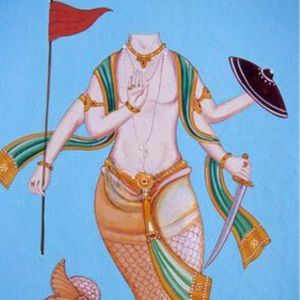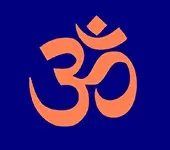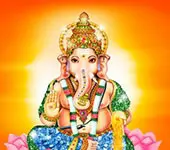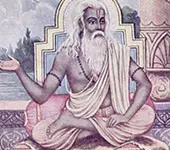Is Guru Necessary for Realization ?
Transcript
(Click here to read more)
Can realization be achieved without the help of a Guru? Yes, quite possible. But it has a big disadvantage. We are starting with the Mumukshu Vyavahara Prakarana of Yoga Vasistha. The first Prakarana, the Vairagya Prakarana, explored the idea that true understanding and liberation come from renunciation of worldly desires and a shift in focus from the external to the internal. It emphasizes the importance of cultivating dispassion and detachment. It was in the format of Sriram Ji expressing his lack of faith in the world, disillusionment with the world. Mumukshu m....
Transcript
(Click here)
Can realization be achieved without the help of a Guru? Yes, quite possible. But it has a big disadvantage.
We are starting with the Mumukshu Vyavahara Prakarana of Yoga Vasistha. The first Prakarana, the Vairagya Prakarana, explored the idea that true understanding and liberation come from renunciation of worldly desires and a shift in focus from the external to the internal. It emphasizes the importance of cultivating dispassion and detachment. It was in the format of Sriram Ji expressing his lack of faith in the world, disillusionment with the world.
Mumukshu means a seeker. The Mumukshu Vyavahara Prakarana focuses on the practical aspects of how a seeker should conduct oneself in the pursuit of liberation (moksha). It provides guidance on the qualities, attitudes, and practices that are conducive to spiritual progress and enlightenment.
Sriram Ji had raised the questions. Now Sage Vishwamitra is responding to him, as everyone, including Devas and Siddhas present in Dasharatha's court, is eagerly waiting for Vishwamitra's response. Vishwamitra knows who Sriram Ji really is. He is not an ordinary prince; he is Paramatma in human form. Vishwamitra says, "It's not that you don't know the answers to the questions you have raised. There is nothing that is unknown to you, or you are yet to understand. But even if someone has known Paramatma tattva, it will not become firm unless you engage in dialogue with Acharyas. बलवदपि शिक्षितानामात्मन्यप्रत्ययं चेतः - You may be a realized being, you may have attained realization, but the doubts don't go altogether." Vishwamitra is saying mere contemplation is not sufficient. He takes the example of Shukadeva, son of Veda Vyasa. Shukadeva was a self-realized being, but he did not get peace. He was restless. In spite of the fact that he was a fully realized being, it was only after receiving upadesha from a Guru that he could attain peace. Vishwamitra says that Sriramji's state was similar to that of Shukadeva. Please note that both Sriramji and Shukadeva thus far had realized the truth through contemplation, by themselves; it didn't come to them through a Guru. They both did not attain peace. They were not convinced that they had realized the ultimate truth.
Once Shukadeva asked his father - How was this world created? Whom does it belong to? When will this come to an end? How big is the world? Is it a creation of the mind? Or is it just awareness, consciousness? Vyas Ji explained everything. Shukadeva said, "I know all these. I was expecting you to say something else, of a different level. See, Shukadeva knows everything, but he still thinks that there is more to be known. You can never have complete faith in yourself. Contemplation doesn't give you confidence in yourself. Contemplation cannot give you finality. You'll still be doubtful." Vyasa said, "Better go to King Janaka and ask him." Shukadeva reached Videh Nagari, the capital of Janaka. Janaka had by then known how Shukadeva did not give value to his father's explanation. Before engaging with him, Janaka wanted to test Shukadeva, lest the same happens with him as well. He wanted to know how serious Shukadeva was. When guards came and informed Janaka about the arrival of Vyasa's son, he said, "So what, be it." He made Shukadeva wait for 7 days. Then he was allowed inside the gate. He had to wait for another 7 days before being allowed into the palace. People don't attach value to whatever is available easily and free of any cost or effort. This is human nature. Even there, it was told to Shukadeva that unless you are first taken care of with food and other comforts first, the king will not meet you. Beautiful maidens served him and tried to lure him. Janaka was testing him. Shukadeva was neglected, but he was unperturbed. He was lured with sensory pleasures, he didn't become happy. Normally, we consider that this state is the ultimate. No, it is not. It is just passing the eligibility test. Then Janaka met him. Greeted him with respect. And asked, "What do you desire from me? You have already attained everything."
The ensuing dialogue will be seen in the next episode.
Recommended for you
Ketu Gayatri Mantra for Relief from Naga Dosha

om chitravarnaaya vidmahe sarparoopaaya dheemahi. tannah' ketuh' prachodayaat.....
Click here to know more..Mantra sadhana is not all that difficult
 Click here to know more..
Click here to know more..
Ganaraja Stotram

sumukho makhabhungmukhaarchitah' sukhavri'ddhyai nikhilaartishaantaye. akhilashrutisheershavarnitah' sakalaadyah' sa sadaa'stu me hri'di. pranavaakri'....
Click here to know more..
English Topics
Yoga Vasishta
Click on any topic to open
- 63 What is this world?
- 62 Is Guru Necessary for Realization ?
- 61 Pushpavrishti At Ayodhya
- 60 The Notion Of Ownership
- 59 Can't Trust The World
- 58 Can Spirituality Not Wait Till Retirement?
- 57 The World Is A Creation Of The Mind
- 56 Why Do We Call The World Unreal?
- 55 Only A Fool Would Get Attached To Worldly Life
- 54 Why Are We Not Able To Get Peace?
Please wait while the audio list loads..
30
Ganapathy
Shiva
Hanuman
Devi
Vishnu Sahasranama
Mahabharatam
Practical Wisdom
Yoga Vasishta
Vedas
Rituals
Rare Topics
Devi Mahatmyam
Glory of Venkatesha
Shani Mahatmya
Story of Sri Yantra
Rudram Explained
Atharva Sheersha
Sri Suktam
Kathopanishad
Ramayana
Mystique
Mantra Shastra
Bharat Matha
Bhagavatam
Astrology
Temples
Spiritual books
Purana Stories
Festivals
Sages and Saints
